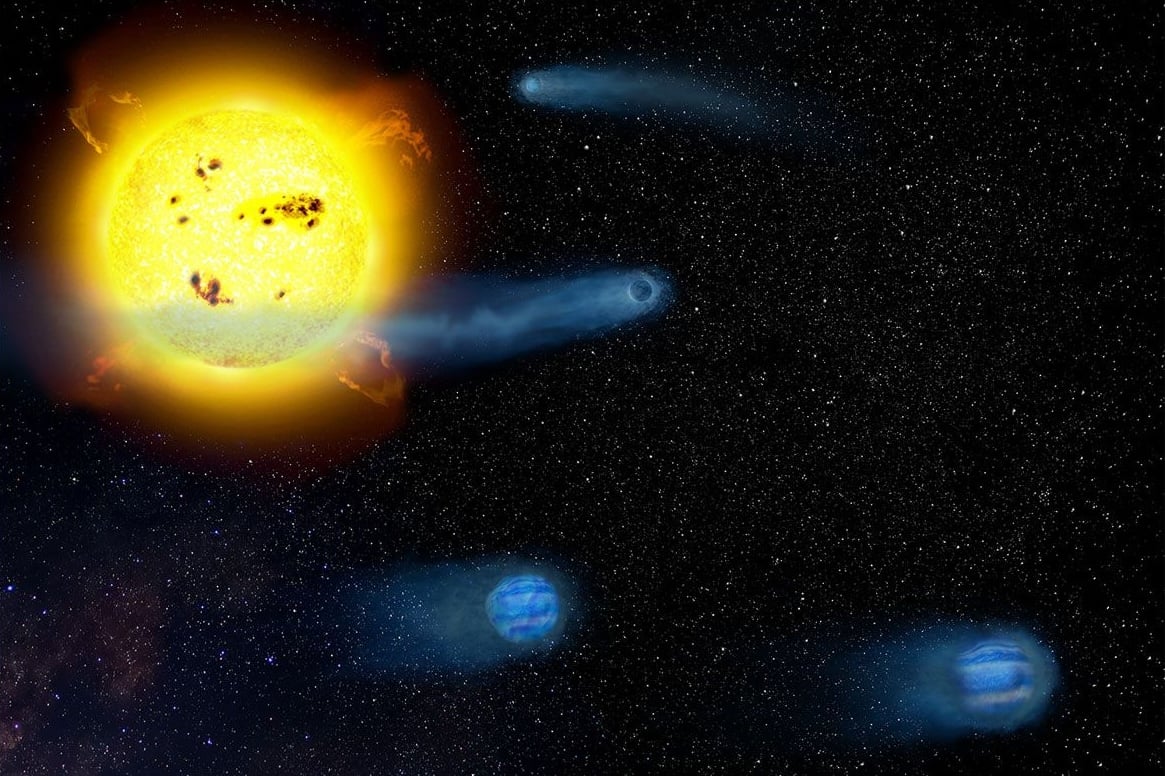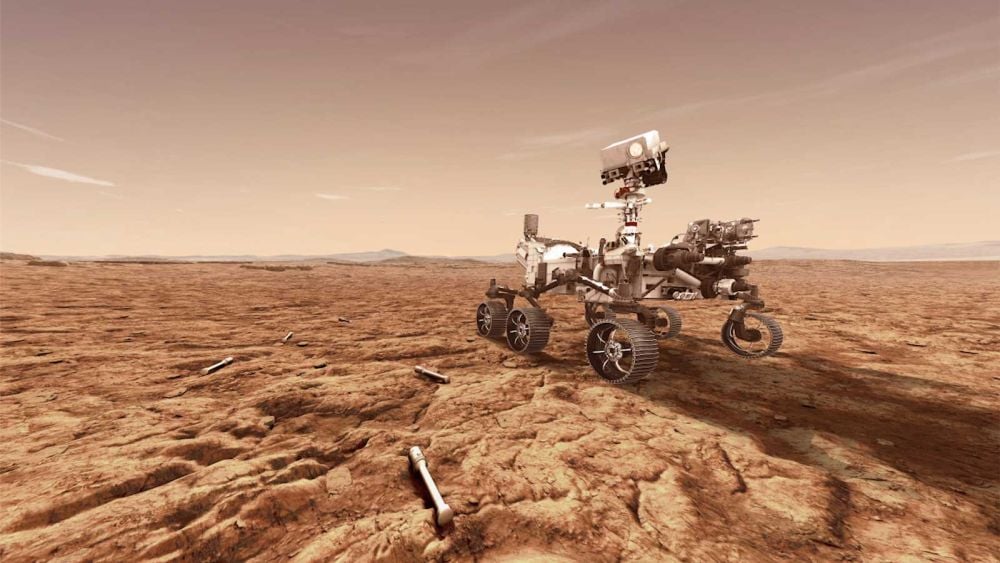A small group of young researchers at the Cosmic Dawn Center, Niels Bohr Institute, University of Copenhagen, have, through observations of the early stages of an extremely large galaxy cluster’s
A new study finds that hot super-Earths begin as large puffy worlds with low densities. Over time their atmospheres are stripped away to leave more dense planets orbiting close to
Astronomers have completed the most comprehensive census of active galactic nuclei (AGN) to date, providing the clearest picture yet of the probability that galaxies of different sizes host active black
Astronomers have long puzzled over how some massive galaxies stop forming stars and remain dormant for billions of years—even when they still contain gas that could, in principle, fuel new
SpaceX has the first of a series of afternoon launches in the next week on tap Friday with another Starlink mission from Cape Canaveral.
Humans have always been fascinated with space. We frequently question whether we are alone in the universe. If not, what does intelligent life look like? And how would aliens communicate?
In a rare move, NASA is cutting a mission aboard the International Space Station short after an astronaut had a medical issue.
Mars has a curious past. Rovers have shown unequivocal evidence that liquid water existed on its surface, for probably at least 100 years. But climate models haven’t come up with
This year’s funding for the Mars Sample Return mission has been cut. It seems unlikely that the mission will be revived in the coming years, barring some unforeseen development. This
They’re called ghost particles for a reason. They’re everywhere—trillions of them constantly stream through everything: our bodies, our planet, even the entire cosmos. These so-called neutrinos are elementary particles that
-
 01Two Black Holes Observed Circling Each Other for the First Time
01Two Black Holes Observed Circling Each Other for the First Time -
 02From Polymerization-Enabled Folding and Assembly to Chemical Evolution: Key Processes for Emergence of Functional Polymers in the Origin of Life
02From Polymerization-Enabled Folding and Assembly to Chemical Evolution: Key Processes for Emergence of Functional Polymers in the Origin of Life -
 03Astronomy 101: From the Sun and Moon to Wormholes and Warp Drive, Key Theories, Discoveries, and Facts about the Universe (The Adams 101 Series)
03Astronomy 101: From the Sun and Moon to Wormholes and Warp Drive, Key Theories, Discoveries, and Facts about the Universe (The Adams 101 Series) -
 04Φsat-2 begins science phase for AI Earth images
04Φsat-2 begins science phase for AI Earth images -
 05Hurricane forecasters are losing 3 key satellites ahead of peak storm season − a meteorologist explains why it matters
05Hurricane forecasters are losing 3 key satellites ahead of peak storm season − a meteorologist explains why it matters -
 06Thermodynamic Constraints On The Citric Acid Cycle And Related Reactions In Ocean World Interiors
06Thermodynamic Constraints On The Citric Acid Cycle And Related Reactions In Ocean World Interiors -
 07Binary star systems are complex astronomical objects − a new AI approach could pin down their properties quickly
07Binary star systems are complex astronomical objects − a new AI approach could pin down their properties quickly








